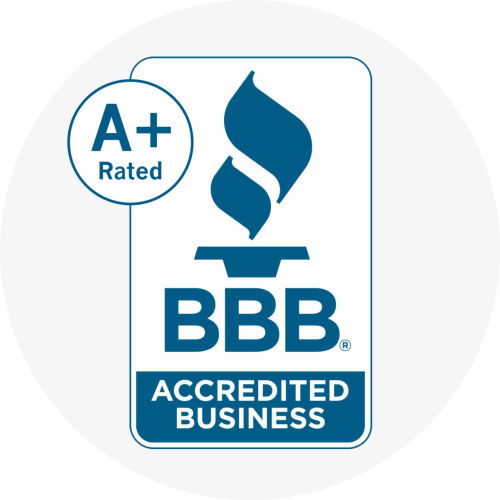If your business still relies on on-premise computing, then it’s time to consider switching to the cloud. As businesses focus more on digitization, embracing cloud-hosted enterprise services is becoming increasingly important.
In short, these services help businesses operate more efficiently while providing a smarter, more secure way of storing and managing data.
Although, switching to the right cloud provider offers more benefits than just this. In the guide below, we’ll discuss some of the main reasons why you should utilize enterprise cloud services. We will also break down the different types of cloud services available to businesses.
What Are Cloud-Hosted Enterprise Services?
Cloud-hosted enterprise services allow businesses to access virtualized IT resources from a cloud-based services provider. The resources can include servers, data storage, networking infrastructure, and more.
As businesses embrace digitalization, moving to cloud-hosted enterprise services gives businesses an efficient and scalable way to access computing resources, instead of having to maintain networks and data centers.
By partnering with a cloud-hosted services provider, businesses can easily access these computing resources for greater operational efficiency.
Benefits Of Cloud-Hosted Enterprise Services
Switching to cloud-hosted enterprise services is a smart move for all kinds of businesses. Here are some of the main advantages.
Cost Savings
One of the most obvious advantages of cloud-hosted enterprise services is its affordability. Traditional computing requires companies to invest in expensive hardware, software licenses, and IT staff to manage and maintain the infrastructure. This involves establishing expensive on-site networks.

With cloud-hosted enterprise services, on the other hand, businesses only pay for the resources they use.
There’s no need for upfront investments or expensive hardware costs. This pay-as-you-go model can result in significant cost savings, which is especially useful for smaller businesses.
Businesses can also easily access their exact cloud requirements and adjust this to meet their requirements. This means you only pay for the cloud services you need.
Scalability
Cloud infrastructure has the ability to adjust computing resources to match the specific demands of the business.
For example, during peak business periods, you may need more computing power to handle the increased traffic. Cloud computing allows you to scale your resources to match the workload.
This flexibility ensures that businesses can provide a consistent and reliable service to their customers without overpaying for unused resources.
The scalability of cloud-hosted enterprise services is also convenient for growing businesses. You can scale up your cloud investments as your business grows, making it seamless to meet your business demands.
Security And Reliability
One of the main reasons organizations choose cloud-hosted services is to improve security around their data. Switching to a cloud-hosted service gives you a lot more control over how your valuable data is stored and managed.
Cloud providers use advanced encryption and access control systems to ensure that only authorized users can access the data.
Third-party cloud providers have security experts constantly monitoring the cloud infrastructure for any threats or vulnerabilities.

Your data will always be backed up in the cloud, and you have a tighter grip over who can access this data. Having all of your data securely backed up and stored will also help you to avoid all kinds of potential disasters, ensuring you never lose important information.
Flexibility
Cloud-hosted enterprise services give businesses more flexibility for scaling their resources as they need them.
Whether you’re launching or testing a new product or service, this flexibility reduces your upfront costs and makes finding a solution that matches your exact needs easier.
Collaboration
The functionality of cloud-hosted enterprise services makes collaboration a lot more straightforward.
Because data is stored on the cloud, it can be accessed by anyone, from anywhere, at any time. This makes it a far more convenient solution for today’s digital work environment – especially with the rising popularity of teleworking.
Different Enterprise Cloud Architecture Types
When it comes to enterprise cloud architecture, there are a couple of options to choose from. It’s important to understand the different types of cloud services and how they match your business’s requirements.
Private Cloud
Private clouds are dedicated to a single organization only. These could be located on-premises or hosted by a third-party provider.
Private clouds provide greater control over security and compliance, making them ideal for organizations that handle sensitive data. The cloud is all yours, so you can manage it however you want.
Public Cloud
These clouds are open to the public and are hosted by third-party providers. Public clouds are highly scalable and more cost-effective, making them ideal for organizations with fluctuating resource demands. The downside is that the cloud shares information with other organizations.

Hybrid Cloud
Hybrid cloud architecture combines both of the previously mentioned cloud types. This type of cloud provides organizations with greater flexibility.
Hybrid clouds allow you to keep sensitive data in a private cloud while leveraging the scalability and cost-effectiveness of a public cloud for non-sensitive workloads.
This is a smart choice for businesses who want more security, but don’t want to invest in a private cloud.
Multi-Cloud
Multi-cloud architecture combines multiple public or private cloud providers to create a unified cloud infrastructure.
Multi-cloud architectures provide organizations with greater resilience and flexibility, allowing them to choose the best provider for each workload. This is a more complex type of cloud-hosted enterprise service.
Conclusion
By switching to the right cloud-hosted enterprise services, your business can access a smarter way to store and manage data.
Whatever type of cloud solution you choose will add greater security, flexibility, and efficiency to your business. Not to mention the fact that it’s a more cost-effective approach to computing.
In our highly digital world, it’s important that businesses embrace the power of the cloud. Regardless of what your business does or how big it is, this is a far more effective way to operate in our current technological landscape.









